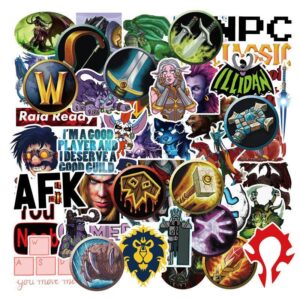Recently, Sean Murray of Hello Games and No Man’s Sky fame gave a keynote where he effectively advocated that game developers should stay silent in the wake of a poor launch situation. Murray also went on to cite the ongoing cases of EA, Microsoft, and Bethesda with their…less than up to snuff titles (Anthem, Sea of Thieves, and Fallout 76, respectively). More from Murray’s Address can be read here, but we here at Culture of Gaming asked some of our writer’s thoughts on Murray’s advice. We gathered some of our writers to discuss the topic of developer communication, and without further ado, here is what we think:
Ayub Kharel:
The widespread popularity of social media today means that it is easier than ever for players to voice their complaints and concerns to the developer of a game. Conversely, it is equally easy for a developer to reply to such issues, but as tempting as it may be for developers to do so, Murray’s seemingly counterintuitive advice of maintaining radio silence is something that should be considered seriously.
Every game and every developer eventually run into some problems sooner or later. Whether it is a PR failure, unkept promises, new bugs in a recent patch, or lack of resources to meet with fan expectations, disaster could strike at any time. It is at times like these that developers should respond with tact, not panic, and say what needs to be said to better the situation, and if there are no words that could realistically improve the situation, then, in this case, the value of silence can never be underestimated.
Mike Sol:
It is difficult to truly express my thoughts on the status of No Man’s Sky and how the game launched compared to where it currently stands. There’s no denying that Hello Games did so much to try and build the game up to par and get it into a position where it can be declared passable. They have my respect for sticking with the game and not simply abandoning it after a sub-par launch of their game.
Taking Sean Murray’s words into consideration, it feels like he did not scale his team compared to Bioware or Bethesda, as well as the actual games the three were making. When you are a small team, fixing up the issues and problems will likely take a considerable amount of time. But when you are a “Triple-A” developer with a team count that is far bigger than 10-20, you have those high expectations set upon you to deliver on your promises or face the rightful backlash you deserve if you failed to meet them.
Also, last I checked, No Man’s Sky did not declare itself as a “Games as a Service” and that would immediately be a cause of concern. Because Hello Games did not design their game to have constant updates (or not to the scale as Fallout 76 or Anthem), them going silent was understandable as their game had all their expectations laid out for all to see. For Anthem and Fallout 76 though, it was clear their games were designed to have the bare minimum thrown out there with more content coming in the future. It is bad enough as it is for a game to launch with barely much else to keep someone invested, but when you take so long to add more to your game, the lack of communication will make people think you aren’t doing much to remedy the situation.
If you are supposed to be offering a “Service,” going silent feels like insulting those who are trying to enjoy said service. Otherwise, if they aren’t supporting the service and make it seem like they aren’t trying to fix the problems or listen to feedback, there will be a significant dropout rate that we have already seen throughout 2019.
Mike Szoke:
I’m a bit out of the loop on this topic. The primary examples being used are Anthem, No Man’s Sky, and Fallout 76. All three are games that I’ve never played, seen much gameplay on, or generally paid any attention to. Even if I previously had some interest in the series that the game was a successor to.
Fortunately, these are not the only games that have had failed launches. Two pretty big games have managed to define the modern MMO genre, that debuted in either a state of poor quality or aggressively poor reception. These games are Final Fantasy XIV and Elder Scrolls Online.
Instead of going silent after the failure of Final Fantasy XIV, Square Enix spent years reworking the game from the ground up. Since then it’s released numerous highly-rated expansions by both fans and critics alike. By avoiding radio silence, owning up to where they went wrong, and listening to fans, Square Enix has made a massively popular MMO game out of its most popular franchise. And that’s not the only case of them working on games that fail to launch successfully. They did the same for Final Fantasy XV. By releasing both story and mechanical updates they managed to turn an otherwise poor entry into something really special.
Bethesda managed to do something similar with Elder Scrolls Online. Which is why I firmly believe in their ability to turn Fallout 76 around. By keeping open ears, and adding what the fans want, they turned one failure around completely. ESO still has millions of active players despite its age and is still going strong with the release of new expansions. Bethesda is clearly looking to pull the same trick with Fallout 76. Nearly every criticism of the game has been fixed or is in the process of being fixed. They’re even adding NPCs to the game just because fans demanded it!
Developers and publishers alike should avoid radio silence. Even if communication drops significantly like with the team at Bioware with Anthem, they’re not just hanging fans out to dry. And in the process, they’re learning from their mistakes. Nothing good comes from acting like you didn’t mess up. But everything can be gained by keeping an open mind, and looking for ways to improve.
Ryan:
It’s evident that Sean Murray’s comments come from a place of personal experience. While he was but a single member of a dev team, he acted as the public face of Hello Games. He made the promises; he helmed the PR campaign. As such, all the ire No Man’s Sky earned was targeted directly at the man. The games press largely branded him a liar and the gaming public bayed for his blood. As any reasonable man would under such conditions, he went quiet, as did his studio. However, while they didn’t speak, they listened.
Anyone who’s followed the development of No Man’s Sky post-launch can tell that Hello Games was systematically addressing the game’s biggest criticisms, from the lack of multiplayer to the lack-lustre story content. It was only due to this outcry and their response to it that the game has improved as much as it has. The criticism of a larger and more discordant project like Fallout 76 or Anthem is difficult to decipher. But precisely the same thing is required. A measure of communication between the development team and the public, so the game’s largest faults can be addressed.
So, I don’t believe the development team should remain quiet. In fact, it’s crucial they do otherwise. The only way to recover from a disastrous launch is to determine exactly went wrong and improve it, knowledge that only your player base can give you. Where Sean’s comments are a little more pertinent, however, is in regards to those in his position. While Fallout 76’s improvements have largely met with praise, Todd Howard’s behaviour regarding them has garnered nothing but scorn.
Between confessing he knew Fallout 76 would have a ‘rough launch’ and expecting applause over the introduction of basic features, he’s undermined the goodwill garnered by the development team. The same could be said of Bioware’s handling of Anthem’s rocky launch. After Jason Schrier’s article exposing the awful conditions that created it, they responded with some of the most blatant corporate side-stepping possible. Their communication with players regarding the game’s development post-launch was better received, though. It was a welcome change from the usual stoic silence of EA and its subsidiaries. The game’s player base appreciated that Anthem didn’t suffer the same post-release exodus that Mass Effect: Andromeda had.
To conclude, Sean Murray is half right. The lines of communication between the player base and the development team must always remain open. However, people like Sean, Todd Howard and any in the position of being the company’s scapegoat should probably keep quiet.
TC Taylor:
We play games in a time of players not being put first when it comes to video games. There is a huge disconnect between what a developer will make, versus what the player wants out of the entire deal. A focus begins to center on the flash and wow, and what will bring in more money. Game trailers are made in such a way to trick a player into thinking this is what they want. You will buy this game or you will be left out of the loop. When does it all become too much to handle and when will the straw break the camel’s back?
Bad games happen, there is no helping that. Sometimes a grand vision is just not as realistic as planned. You have to take the silver lining with most simply because the idea was too ambitious. No Man’s Sky is a big idea, that honestly was too big a bite for the developer Hello Games to chew on. The scale was too large for the time they took to make it. The trailer tricked you into thinking it was a massive scale game with lush living worlds. What I got at launch, was a dumbed-down Minecraft with alien horror more atone to H.P. Lovecraft’s liking.
Should we have gotten word on why we received a half baked piece of garbage over the world explorer we were promised? Yeah, I would say so. The internet is a heck of a thing this day and age and people use it to voice what they hate. People love to hate things, so when you give them something to hate, the masses will arise. So why not give an update or two and speak about what went wrong? I would be more willing to trust a developer that admitted a mistake rather than stay hush-hush. They could give us more for free afterward.
Making games is running a business where your boss is the players that buy the game. You would want to keep them happy instead of in the dark. No Man’s Sky isn’t the only victim to a bad launch, as Bethesda dropped Fallout: 76 with such a raw feel that it was mind-blowing anything made it passed game testers. Bethesda is known for bugs, but the game was almost broken, and not to mention boring. A game with such scale of quests like Fallout cannot be void of characters that help build the world around you. This is a key to any RPG game, the key being NPCs. Love or hate them, NPCs build a more believable world for you to explore.
The biggest of bad launches and mostly all-around bad games is EA. I do not want to hate on them, but their formula of game is based more on how much money they can make. This shifts the focus from what will make a good game, to what will make gamers spend more money. Anthem is a game that I will not play and picked to skipped without hesitation. All I saw when it was announced was more money for EA off skins for your robot suits or add-ons that should already be in-game. In the grand scheme of things, it is okay to admit you made a boo-boo. Staying quiet about it makes it seem as if you do not care.
There are developers that worked on some of these titles that I am sure were so passionate about delivering something great. The only issue with this is that one bad apple can spoil an entire batch.
Taylor:
Sean Murray’s advice, unfortunately, does not boil down into a binary “yes, this is the correct choice” or “no, this is incorrect”. The statement is riddled with nuances.
Generally speaking, however, I would say yes, this is typically good advice, for precisely the logic Murray laid out. Community trust will already be at a low, so at that point, why would they believe anything you have to say? While that adage may be true, as previously mentioned there are nuances, and this is one of them. Having a total blackout in developer communication can be egregiously frustrating as a member of a particular game’s community (ask me how I know). With a total dead communication line, it starts to create the impression on the players that you as the developer don’t perceive anything to be wrong, and things are just peachy when the reality couldn’t be further from that.
Which is why I think it’s best to, as a developer in a poor launch situation (not unlike No Man’s Sky did once upon a time), communicate with the players that you recognize there is a problem, and lay out a sort of plan of attack (I hesitate to say roadmap, because that implies dates) regarding issues, and what you plan to do to fix them. I would personally stray away from dates as if something goes wrong during fixing, or a fix doesn’t quite pan out as intended, then you’ve ended up doing more harm by committing to a date, and then missing it.
I think one of the best examples of handling a poor launch is the case of Final Fantasy XIV (FFXIV). FFXIV launched in a rather sorry state, where quite frankly, it just wasn’t fun to play. The developers refrained from a total communication blackout and effectively said “Ok, we understand there are issues. Here’s what we plan to do, but we’re not quite sure when it’ll happen by. We will update you further as time goes on.” And lo and behold it worked, as the developers made good on their promises, and FFXIV relaunched as A Realm Reborn after being taken down for play for approximately a year.
Perhaps the difference-maker in FFXIV’s case is that the developers made an event out of it, literally destroying the FFXIV 1.0 world with an in-game event, before writing in lore and backstory in A Realm Reborn as to what happened. Anthem can have a similar out as well, if BioWare so desires. As the lore mechanics do exist that the world of Anthem can be reshaped, but it would first require the developers admitting that things are wrong and that they’re fixing it.
Final Thoughts
The topic of developers responding to community grievances, especially in the case of failed launches, is home to a wide variety of opinions. Some may believe silence is golden, whether developers are trying to atone for their failures or not. Others desire deeper and more frequent interaction with the community, keeping players aware of what went wrong and what’s next. So, who do you agree or disagree with? And why? You can discuss our opinions with us over on our community discord, and be sure to stay tuned to our editorials section as we’ll be sure to bring you more group weigh-ins like this one!












